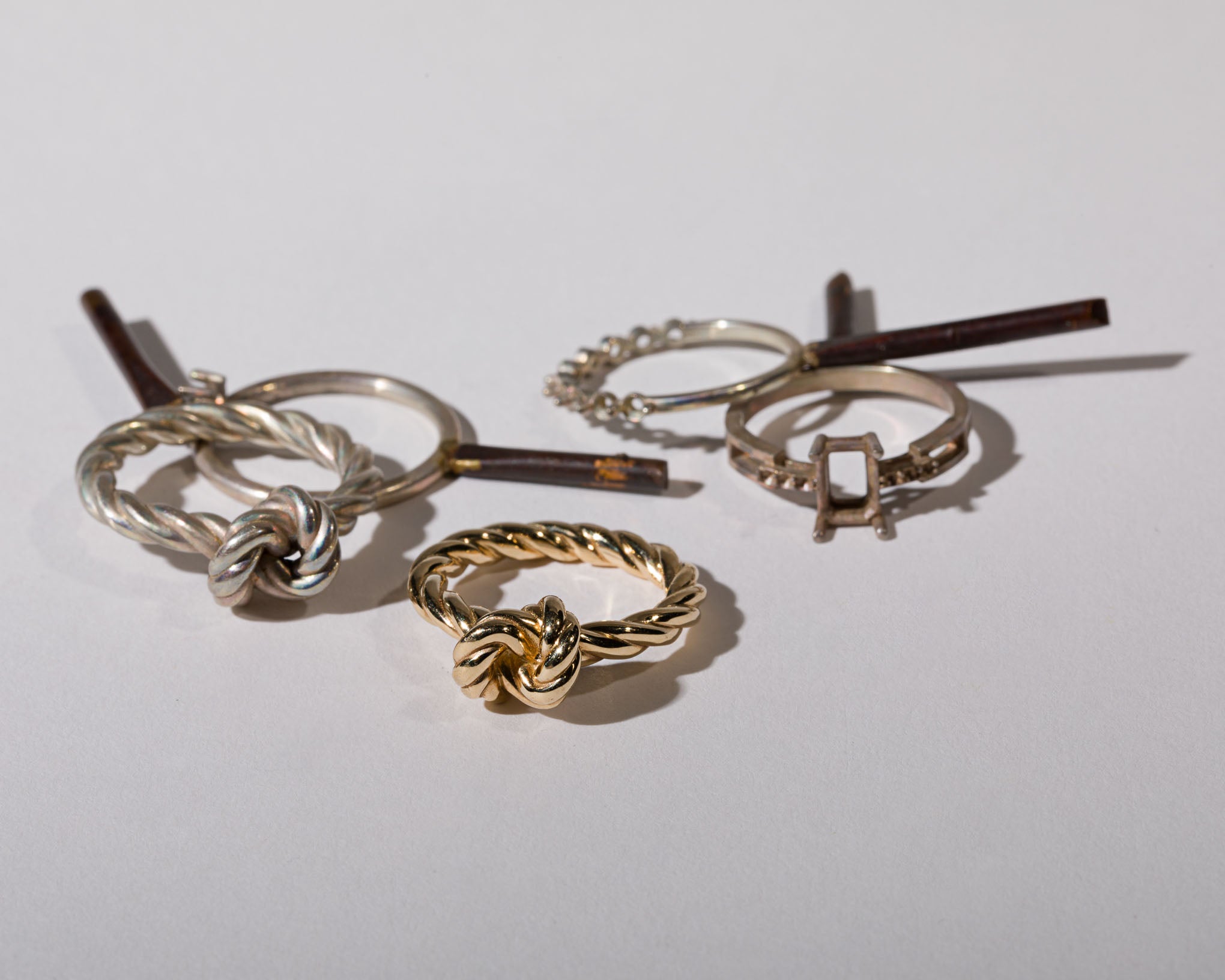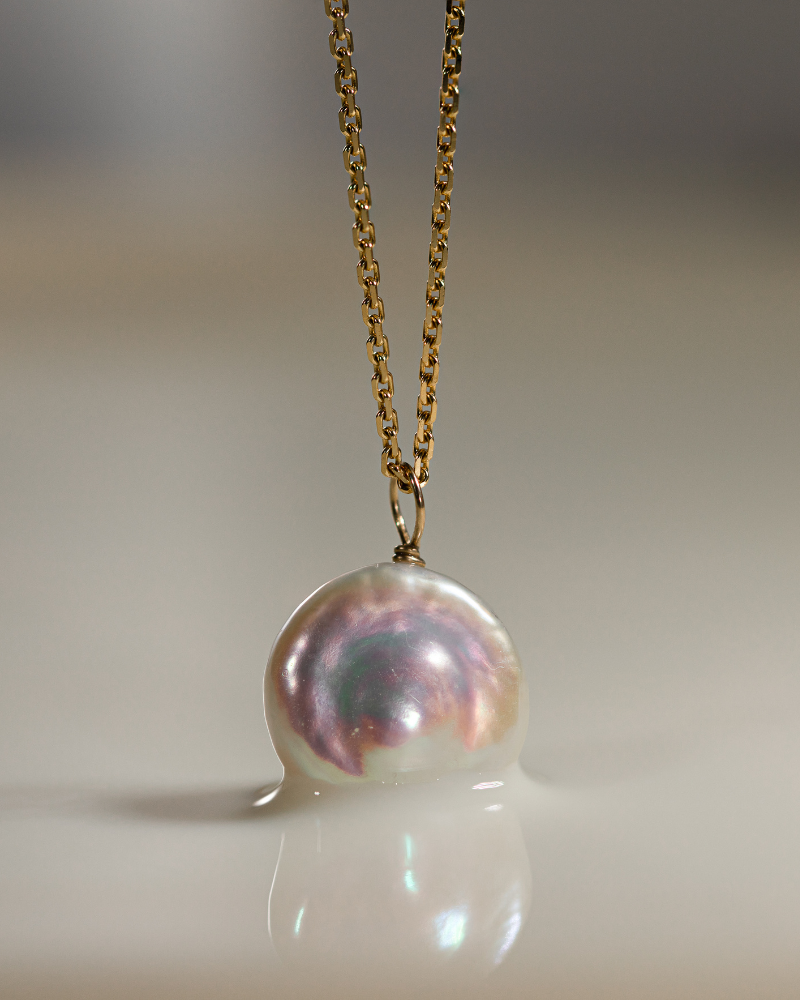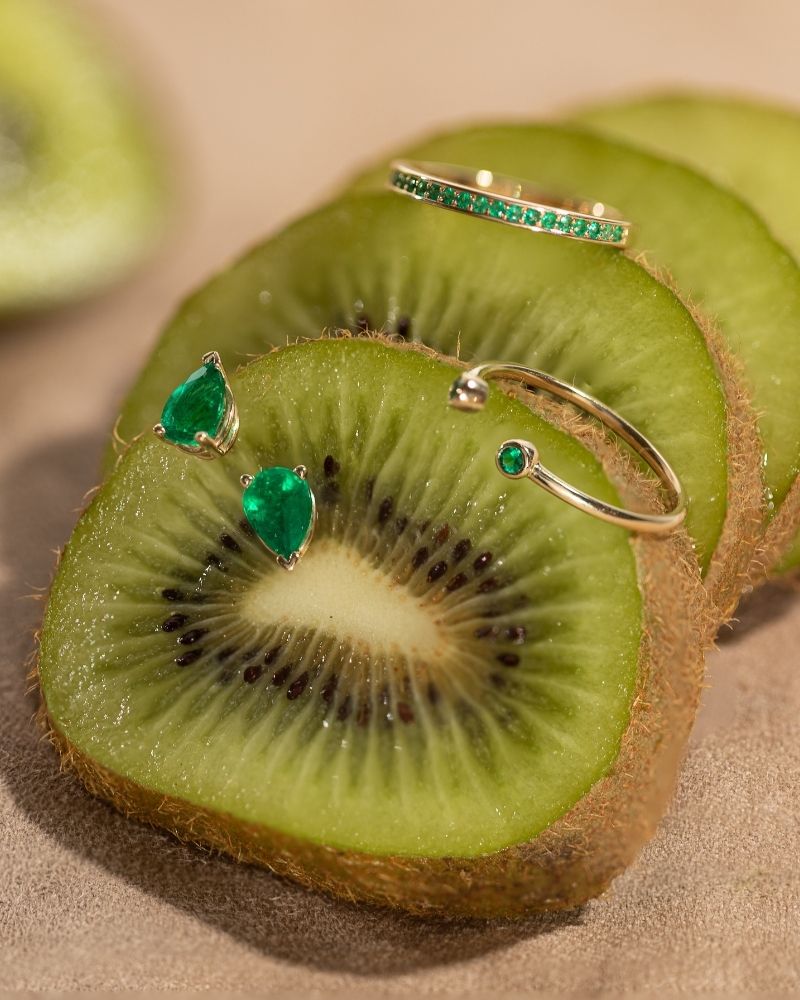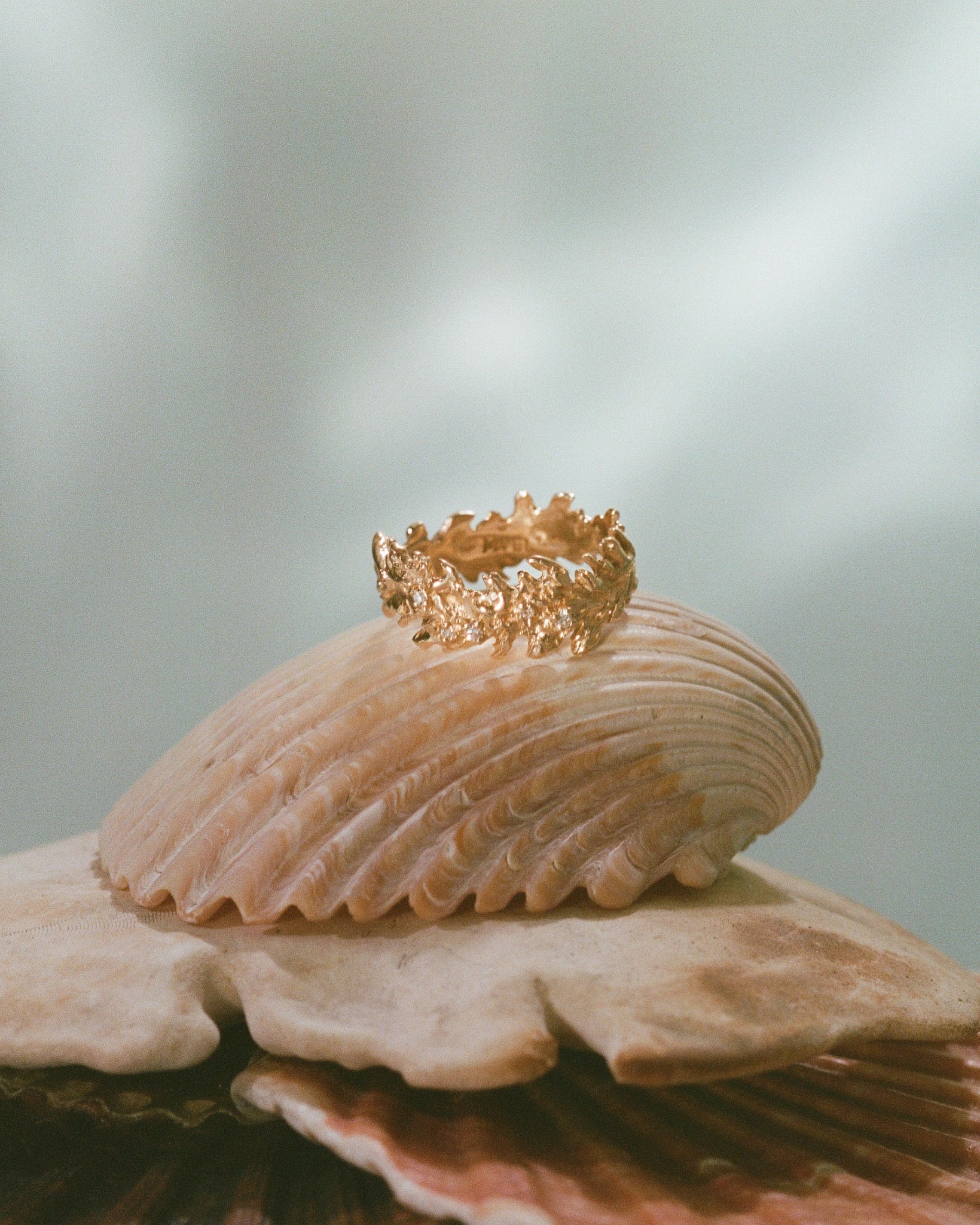Recycle gold versus Ethical gold: how to choose?
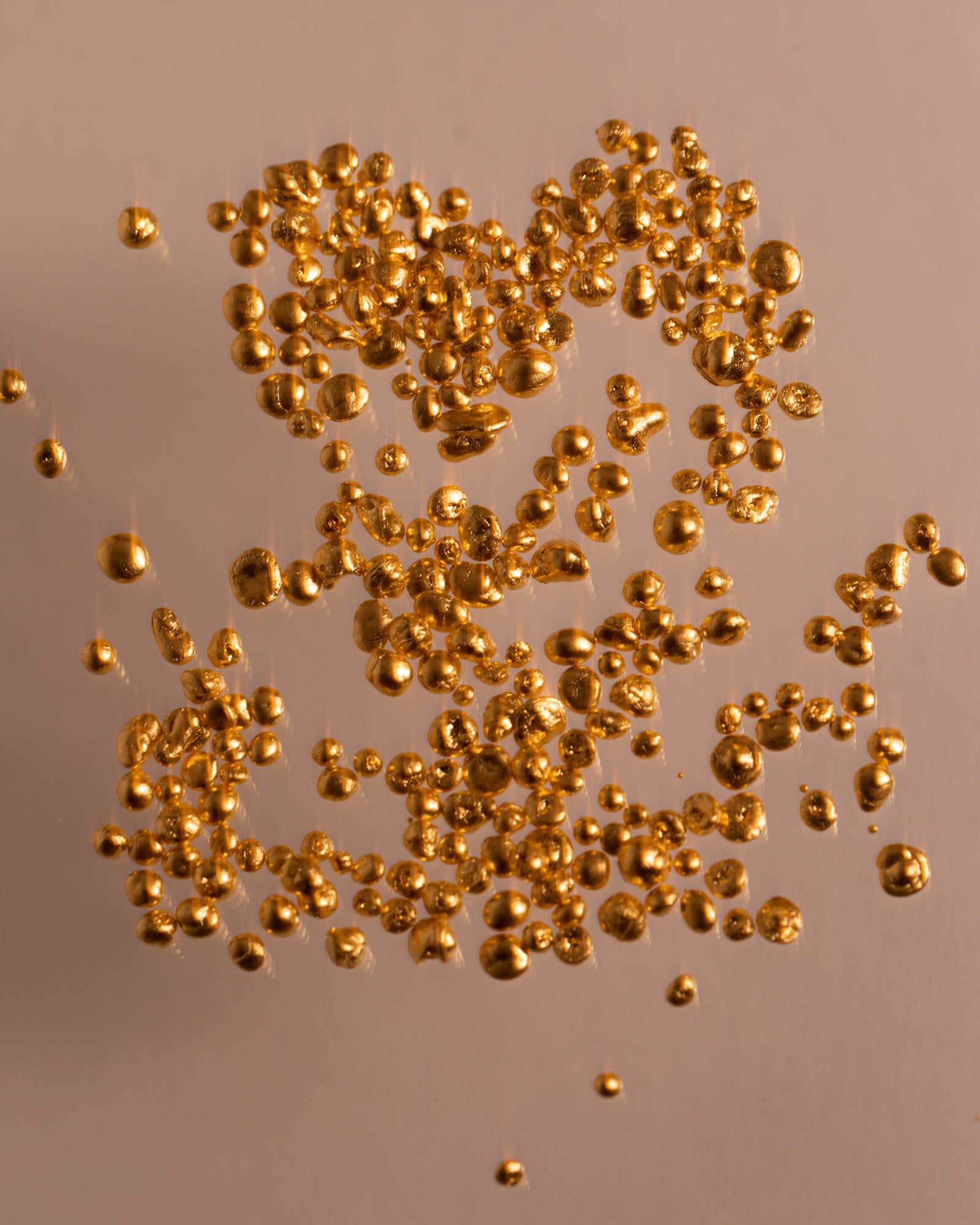
As old as our planet Earth, gold has passed through ages and marked all the different civilizations. Nowadays, it is the most prestigious and precious metal. It fascinated but its extraction implies consequences: environmental disaster, deplorable working conditions for minors, armed conflicts… The quest for a « cleaner » and more responsible gold is gradually forcing itself on the jewelry industry. Recycled gold or Ethical gold: what are the option and what does that really mean?
Ethical gold: Fairmined and Fairtrade
Sourcing ethical gold is not easy. Indeed, although varions certifications exist, only two of them seem to dominate the market and ensure a quality standard : Fairmined, which is delivered by a Colombian organization, and Fairtrade, launched by the Swiss foundation Max Havelaar.
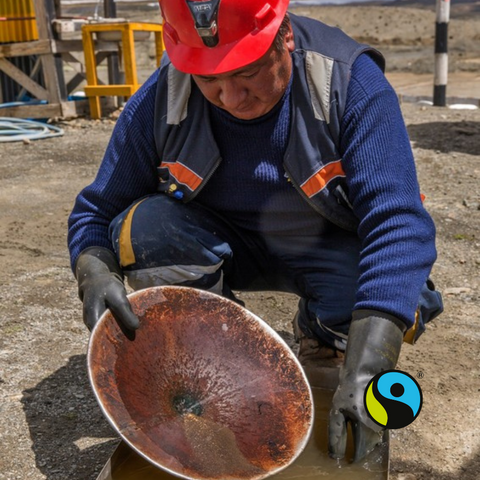 |
 |
Fairmined Gold
The Fairmined label was created by the Alliance for Responsible Mining (ARM) in 2007 and grants certifications to mining operations which apply very strict ecological social and human standards. Artisanal mines which receive this label guarantee the buyer ethical gold that :
-
prohibits children labor
-
prohibits slavery
-
do not support any armed conflict
-
participates in the development of local community by creating jobs
-
promoted equal pay between men and women
-
ensure legal and safe working conditions
-
protects soils by banning the use of toxic product such as mercury and cyanide
Today, only 6 mines in South America are Fairmined certified. Fairmined audits and certifies all the players in the sectors, from the mine to the finished product by ensuring its traceability and that the established criteria are respected. It’s a very demanding certification and therefore very difficult to obtain and maintain.
Fairtrade Gold
Fairtrade labeled gold exists since 2014. This gold is certified by the Swiss Max Havellar foundation and respects strict extraction and refinement processes to ensure fair trade exchange. The Max Havelaar Foundation is a non-profit organization that grants the Fairtrade label to products from sustainable culture and fair trade. It is know in particular for fair trade coffee.
However, the production of this ethically certified gold is very limited - only a few hundreds kilograms per year are available on the market while the global gold production reaches 3,300 tons. It is therefore still an administrative and financial obstacle for jeweller who wish to buy Fairtrade or Fairmined gold. Moreover, audits conducted by Fairmined also require jewellers to update their manufacturing process in order to ensure, for instance, that the casting of ethical gold is not mixed with any other kind of gold. Industry as a whole - and not just the mining operations - must prepare and equip itself to faces the changes.
Recycle gold: myth or reality?
Gold is probably the most recycled metal in the world. Indeed, given its high value, it seems logical that no one throws away or gets rid of their gold. Since the discovery of this precious metal, only 2% of this known stock has disappeared : people or industries that own it keep it, pass it on, resell it, etc. In short, they recycle it. Moreover, the recycled gold used in the jewelry industry comes from foundries specializing in recycling which get the gold in different ways:
-
thanks to individuals who come to sell their pieces of jewelry
-
thanks to manufacturing or workshop waste such as gold dust or unsaleable defective products
-
thanks to industrial gold that we can find in IT material
Recycled gold allows jewellers to affirm they contribute to reduce negative impacts caused by gold mining because they do not increase the demand for it. Actually, this is not completely true regarding the two following main reasons :
-
Gold keeps on being mined because it generates value: it is the ultimate currency in the current global banking system. Its extraction will last even if jeweller use recycled gold
-
Recycled gold comes from worksop waste as seen above - but some industries, especially in the luxury sector, produce a lot of waste (over 50%) and therefore do no promote any responsible practices.
 |
 |
So, which gold to choose?
In our opinion, saying that we made the choice or recycled gold is often a marketing argument to enhance the image of a brand. Gold used in jewelry is almost always made from recycled gold which may ultimately have been mined only a few weeks before and be considered waste. Can we really call it recycled gold then? Moreover, recycled gold in general is very complicated to trace because it mixes different sources of supply.
Certified artisanal gold mining supports approximately 100 million people around the world. It is believed that environmentally and socially controlled extraction, such as that guaranteed by the Fairmined label, results in certified gold, which creates jobs, is perfectly traceable and which supports economic growth in certain regions of the world. This ethical gold is limited in quantity and therefore more expensive on the market. It requires a change in all the links of the jewelry industry and a gradual adaptation.
At MYEL, we are convinced that this gold, which drives positive change at all levels, is the best possible option. This is why we launched in early 2021 our first collection of Fairmined certified gold love rings, which carry with them a story of which we are proud.
Sources :
https://www.responsiblemines.org/fr/2019/11/el-oro-reciclado-es-una-opcion-etica/
https://www.maxhavelaar.ch/fr/produits/categories-de-produits/lor-fairtrade
https://info.fairtrade.net/fr/product/gold
